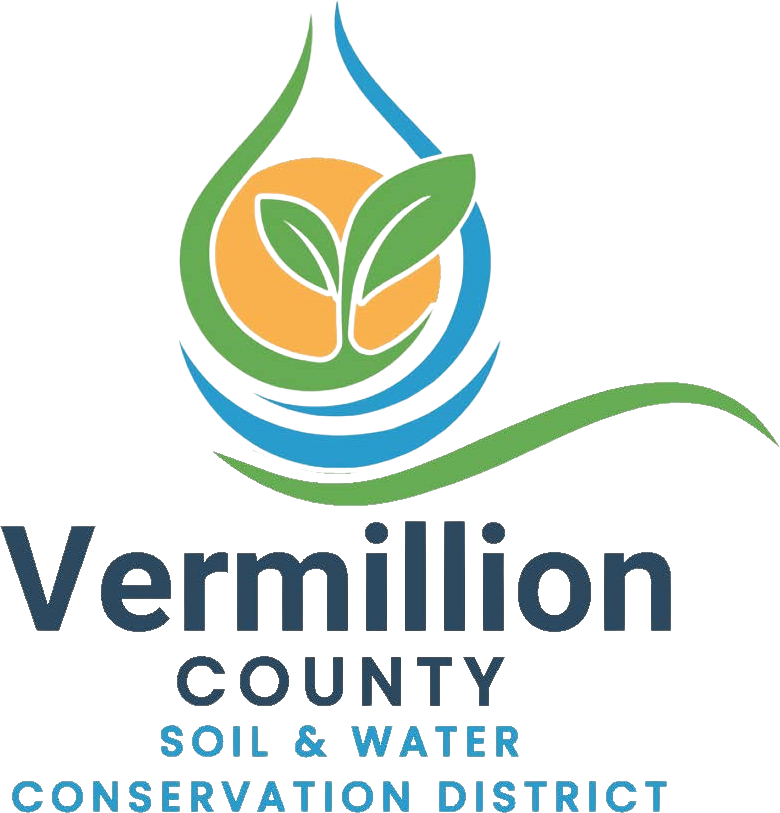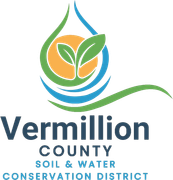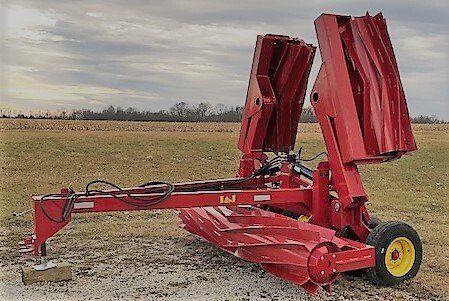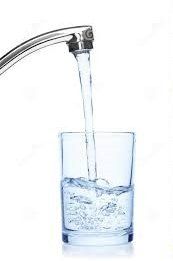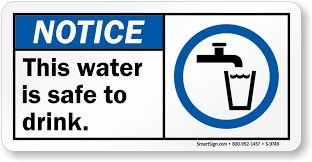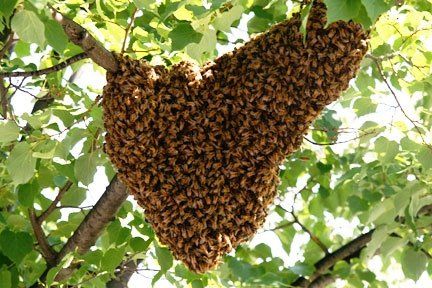Services
Roller/Crimper Rental
The new roller/crimper is designed to terminate cover crops without the use of chemicals. The roller/crimper allows producers to lay down a weed suppressing cover crop mat which can be done before or after planting the cash crop. If used correctly and with the right cover crop mix, herbicide rates can be drastically reduced if not eliminated.
The roller/crimper will be available for rent through the SWCD office beginning this spring. Carter Morgan, SWCD Soil Health Consultant and SWCD Staff will be available to discuss how to utilize the roller/crimper in your operation!
Well Water Testing Services
The Vermillion County SWCD works with the Indiana State Department of Health to provide accurate well water testing services to Vermillion County residents. Residents needing wells tested can pick up supplies from the SWCD office. The SWCD currently stocks testing supplies for bacteria, nitrates and metals.
For testing supplies, please contact the office to make arrangements.
Current Indiana State Department of Health Well Water Testing Fees
Bacteria (E.coli and Total Coliform) $10 per sample
Nitrates/Nitrites $10 per sample
Metals (Lead, Copper and Arsenic) $20 per sample
Overnight shipping fees are approximately $31.00 and must be shipped from the SWCD office by 1pm to arrive at ISDH Labs by 10:30 the next day.
SWCD only ships Tuesday – Thursdays
SWCD staff is available to come and take your samples and ship them to the Indiana State Department of Health Environmental Labs for testing.
IDEM Well Disinfection Instruction
Local water testing services are also available through Pace Analytical Labs. Please work directly with Pace Analytical, the SWCD office DOES NOT carry testing supplies for Pace. Certain fees will apply.
11422 S US Hwy 41
Farmersburg, IN 47850
812.696.5076
www.pacelabs.com
SOIL SAMPLING FOR GARDEN, TURF AND LANDSCAPING
The basis of a great garden is healthy soil. Soil testing is the best way to make sure your soil is as healthy as it can be. Over fertilizing can damage the plants or simply waste money. Under fertilizing or using the wrong fertilizer can produce little to no production.
Basic soil tests commonly measure organic matter, pH, phosphorus and potassium. Home improvement stores or online resources sell test kits for “at home” testing. For the most accurate tests, the use of commercial testing services is recommended. A list of soil testing facilities is listed below. This is not a comprehensive list and does not serve as an endorsement to the exclusion of other facilities that might provide similar services.
In most cases, you will need to collect enough soil from several locations to mix thoroughly and provide enough soil to fill a zip close sandwich bag. Make sure to refer to the testing services sampling requirements before collecting your samples. Soil testing typically be done every 3 – 5 years.
SOIL TESTING LABS
A&L Great Lakes Laboratories, Inc.
3505 Conestoga Drive
Fort Wayne, IN 46808-4413
Phone:
(260) 483-4759
Fax: (260) 483-5274
E-mail:
lab@algreatlakes.com
Website:
https://www.algreatlakes.com/
Lawn & Garden Soil Analysis, $20.00. Includes Soil pH, Buffer pH, Available Phosphorus, Exchangeable Potassium, Organic Matter, Magnesium, Calcium, Cation Exchange Capacity, and Percent Base Saturation of Cation Elements. Provides graphic display of results and suggested fertilizer materials for lawn, garden and landscape.
UMass Soil and Plant Tissue Testing Lab
West Experiment Station
682 North Pleasant Street
University of Massachusetts
Amherst, MA 01003
Phone:
(413) 545-2311
Fax: (413) 545-1931
E-mail:
soiltest@psis.umass.edu
Website:
https://soiltest.umass.edu/services
Several different tests are offered the University of Massachusetts lab including the following): 1) Standard Soil Test ($10.00) – Provides pH, Buffer pH, Extractable Nutrients, Extractable Heavy Metals (eg. Lead), Cation Exchange Capacity, and Percent Base Saturation. Recommendations for nutrient and pH adjustment are included with results. 2) Standard Soil Test with Organic Matter ($15.00) – Same as Standard Soil Test plus a determination and interpretation of the organic matter in the soil sample.
WOODLAND OWNERS
The VCSWCD provides a subscription to the Indiana Woodland Steward Magazine to any woodland property owner in the county. If you own wooded property in Vermillion County and do not receive this publication, please contact the office to receive your complimentary subscription.
RULE 5
Construction/Land Disturbance Storm Water Permitting327 IAC 15-5, Rule 5
The requirements of Rule 5 now apply to all persons who are involved in construction activity that results in the disturbance of one (1) acred of total land area.
This includes:
• Clearing
• Grading
• Excavation
• Other land disturbing activities
If the land disturbing activity results in the disturbance of less than one (1) acre of total land area, but is part of a larger common plan of development or sale, the project is still subject to storm water permitting.
For more information check out their website.
Step by Step Process for Compliance with 327 IAC 15-5IDEM administers Rule 5 in cooperation with local Soil and Water Conservation Districts (SWCDs). The SWCD’s play a significant role in implementation of 327 IAC 15-5.
Rule 5 requires the development of a Construction Plan. An integral part of the Construction Plan is a Storm Water Pollution Prevention Plan. The Storm Water Pollution Prevention Plan addresses several issues. First, the plan outlines how erosion and sedimentation will be controlled on the project site to minimize the discharge of sediment off-site or to a waters of the state. Second, the plan addresses other pollutants that may be associated with construction activity. This can include disposal of building materials, management of fueling operations, etc. Finally, the plan should also address pollutants that will be associated with the post construction land use.
Additional information on this process can be found at www.in.gov/idem/5419.htm
Indiana Storm Water Quality ManualThe Indiana Storm Water Quality Manual provides guidelines and specific storm water quality measures for controlling soil erosion; controlling and treating the non-point source pollution associated with sediment-laden runoff; and the management and treatment of pollutants associated with post-construction land uses. Adhering to these guidelines and properly applying appropriate storm water quality measures will help minimize the adverse impacts that land disturbance, construction activity, and development can have on soil and water resources, and ultimately, the cost of impacts to society as a whole. In addition to a variety of storm water quality measures, the manual also discusses the philosophy and planning procedures critical to developing an effective storm water pollution prevention plan.
You can see the planning and specification guide for effective erosion and sediment control at:
www.in.gov/idem/4899.htm
OBTAINING THE SERVICES OF A SOIL SCIENTIST
This section will help you find a well-qualified consulting soil scientist who will do soil and landscape evaluations for on-site wastewater disposal systems or for other purposes. The registered soil scientists listed here have the technical credentials required by state law (Indiana Code 25-31.5) and have agreed to follow a Code of Professional Conduct which states that they hold paramount the health and welfare of the public and the protection of soil and water quality. (Description courtesy of IRSS)
Roster of Indiana Registered Soil Scientists
This roster lists names, addresses, phone numbers and other information for Indiana Registered Soil Scientists. Many people will use the Roster to find a well-qualified consulting soil scientist who will do soil and landscape evaluations for onsite wastewater disposal systems or for other purposes. All registrants have agreed to follow a Code of Professional Conduct which states that they hold paramount the health and welfare of the public and the protection of soil and water quality. Registered Professional Soil Scientists have all the credentials required by state law (Indiana Code 25-31.5). Registered Associate Soil Scientists have the same credentials except that they have not yet met the work experience requirement. Most Registrants offer their services to the public, but some do not. This distinction is made in the Roster.
Swarming Bees Removal
Swarming is the process by which a new honey bee colony is formed when the queen bee leaves the colony with a large group of worker bees. In the prime swarm, about 60% of the worker bees leave the original hive location with the old queen. This swarm can contain thousands to tens of thousands of bees.
If you see a swarm of bees in your yard or around our local communities, please call our office and we can get a bee keeper there to safely remove the swarm. Bees are one of our greatest pollinators and we need to keep them safe. Help protect our pollinators!
WILDLIFE REHABILITATION
Indiana DNR – Permitted Wildlife Rehabilitators
as of March 22, 2021
Public List For Orphaned, Injured, or Sick Wild Animals Only
Local Rehabilitators Servicing Vermillion County
Sandy Blackburn 765-585-5244
rabbits, squirrels, raccoons, opossums, skunks, groundhogs (NO deer, coyotes, or foxes)
pick up and accept deliveries of orphaned, injured and adult animals
Mindy Poole 765-866-7112, 765-918-4571
deer (fawns only), foxes, mink, squirrels, and bobcats
accept deliveries of orphaned animals
Karen White 812-243-0622
Mammals, reptiles, amphibians, birds
accepts deliveries of orphaned, injured and adult animals
Or call your local veterinarian for information regarding orphaned or injured wildlife
